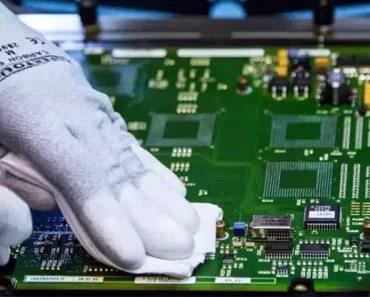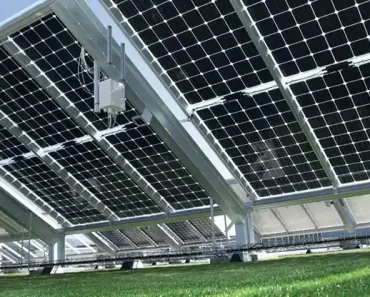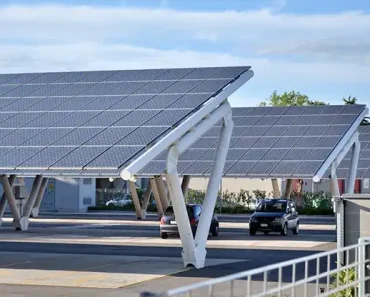As global awareness of environmental sustainability grows, both individuals and enterprises are seeking methods to diminish their carbon impact. Solar panels emerge as a significant solution in the quest for eco-friendliness. However, a common query arises: do these panels function during nighttime? In this article, we shall delve into the mechanics of solar panels and examine their capacity to generate energy post-sunset. Furthermore, we’ll provide insights on optimizing the utility of your solar installations. We appreciate your engagement and time in reading this.
What Are Solar Panels?
A solar panel is an apparatus designed to transform solar energy into electricity suitable for domestic use. It comprises photovoltaic (PV) cells, which capture sunlight and convert it into direct current (DC) electricity. This method harnesses renewable energy, distinct from conventional sources like coal or oil. To produce sufficient electricity for a household, multiple solar panels must be interconnected.
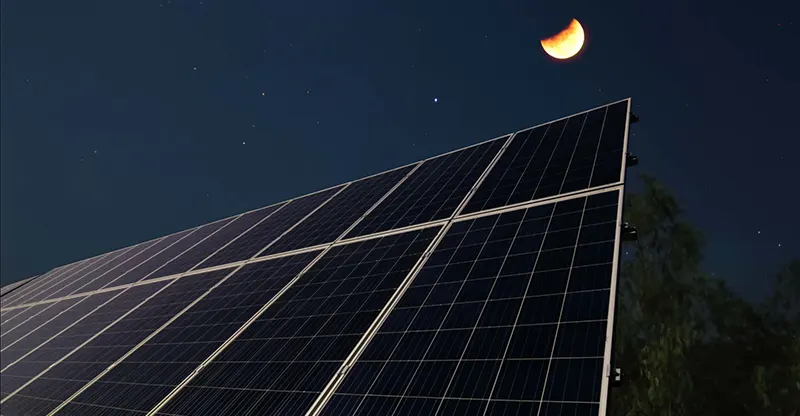
How Do Solar Panels Work?
Solar panels are sophisticated devices designed to harness sunlight and convert it into electricity. Composed of interconnected solar cells, these panels operate when sunlight activates electrons within these cells, causing them to move. This movement of electrons produces an electrical current, which is then channeled through a wire to an inverter, transforming it into the alternating current (AC) predominantly used in households.
Furthermore, solar panels are encased in a durable metal frame and protective glass, ensuring the solar cells remain undamaged and uncontaminated. To amplify power generation, multiple solar panels can be amalgamated into an array. Such arrays are often foundational to large-scale solar power plants.
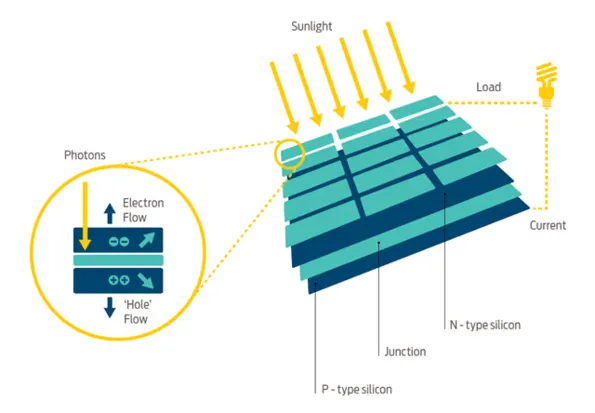
How Solar Panels Work on Cloudy Days?
Solar panels possess the capability to produce electricity from both direct and diffused sunlight. Consequently, their functionality persists even during overcast conditions. Though the efficiency might be diminished, the photovoltaic cells within these panels retain the ability to harness a portion of solar energy and convert it into electricity.
The electricity generation on cloudy days is influenced by various factors, including the thickness of the clouds and the intensity of ambient sunlight. Notably, even under cloudy conditions, sunlight carries sufficient photons to induce a modest electrical current. Nevertheless, obstructions like cloud shadows can diminish light exposure, leading to reduced electricity generation. Additionally, precipitation, whether rain or snow, can refract light away from the panels. Thus, even amidst suboptimal conditions, solar panels can consistently furnish a dependable electricity supply.
How Do Solar Panels Work at Night?
Solar panels remain operational on overcast days, yet they are ineffective during nighttime. The underlying principle is clear: sunlight impinging on a solar cell releases electrons from their atomic orbits, a phenomenon termed the photovoltaic effect. These dislodged electrons, in their motion through the solar cell, produce an electric current. Without light, the photovoltaic effect cannot be instigated, rendering electricity generation impossible.
For optimal performance, solar panels necessitate light, with sunlight being the most ideal. While they have the capability to harness light from alternate sources, such as streetlights or even moonlight, the resultant energy output is negligible. Consequently, during nighttime, solar panels enter a dormant state, ceasing electricity production.
Do Solar Panels Work in the Rain?
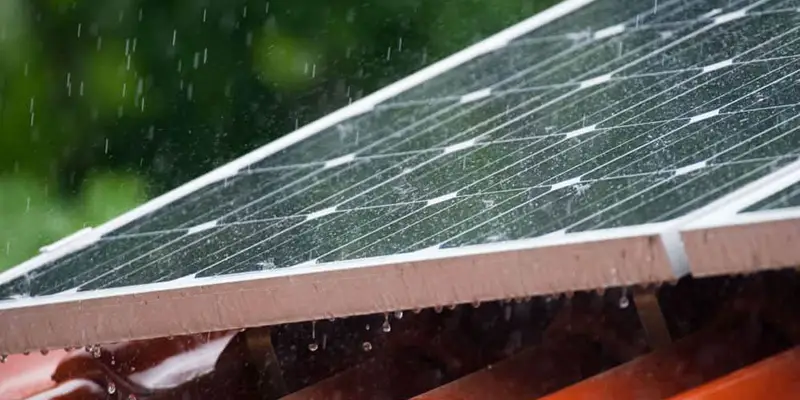
Rain itself does not directly diminish the electrical output of solar panels. However, the presence of dense cloud cover and rainfall can obstruct sunlight penetration, leading to a reduction in power generation by approximately 40-90%.
While rainfall might momentarily hinder electricity production, it also offers an inadvertent benefit by cleansing the solar panels. In regions prone to dust accumulation, a bout of rain can notably enhance the efficiency and output of your solar panels.
Do Solar Panels Work When It Snows?
Solar panels are indeed capable of generating electricity in snowy conditions, provided the snow accumulation is not too dense. Although snow may impede sunlight, it doesn’t entirely prevent it from reaching the panels, resulting in a decrease in the panel’s efficiency.
Even under light snow coverage, solar panels can harness energy since sunlight can permeate through it. Additionally, snow serves as an insulating layer, curbing heat loss and preventing potential overheating of the panels.
According to the Department of Energy, snow, akin to rain, also plays a pivotal role in cleaning the panels as it melts away.
Conclusion
Solar panels represent a commendable means of harnessing renewable energy. As technological advancements unfold, their efficiency continues to improve. Although they may not be the optimal choice for electricity generation during nighttime, they undeniably hold a significant position in the realm of renewable energy sources.




